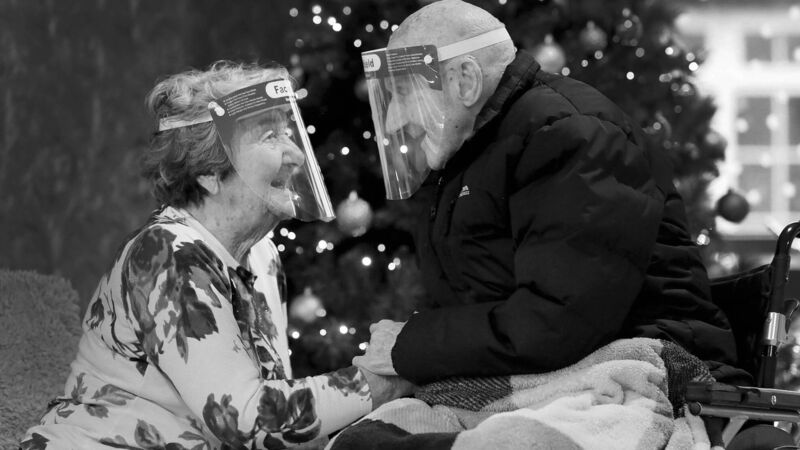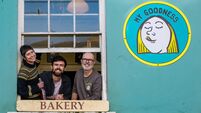Covid, the 'meaningful' Christmas, and what will a review achieve?

Hamilton Park Nursing Home resident 98-year-old Eddie Burtenshaw (right) with his wife of 70 years Gladys Burtenshaw (aged 95) embracing for the first time in 10 months having previously only seen each other through perspex partition during the pandemic in 2020. Bereaved families, understandably, are keen to know what lessons were learned from the early days of the pandemic which saw residents of such homes among the worst affected by the disease. Photo: Julien Behal
On December 22, 2020, the Department of Health played host to a management meeting.
In attendance were the acting secretary general of the Department Colm O'Reardon and his senior officials, and, as was often the case during the covid pandemic, senior representatives from the national public health emergency team (Nphet), the State’s covid taskforce.





